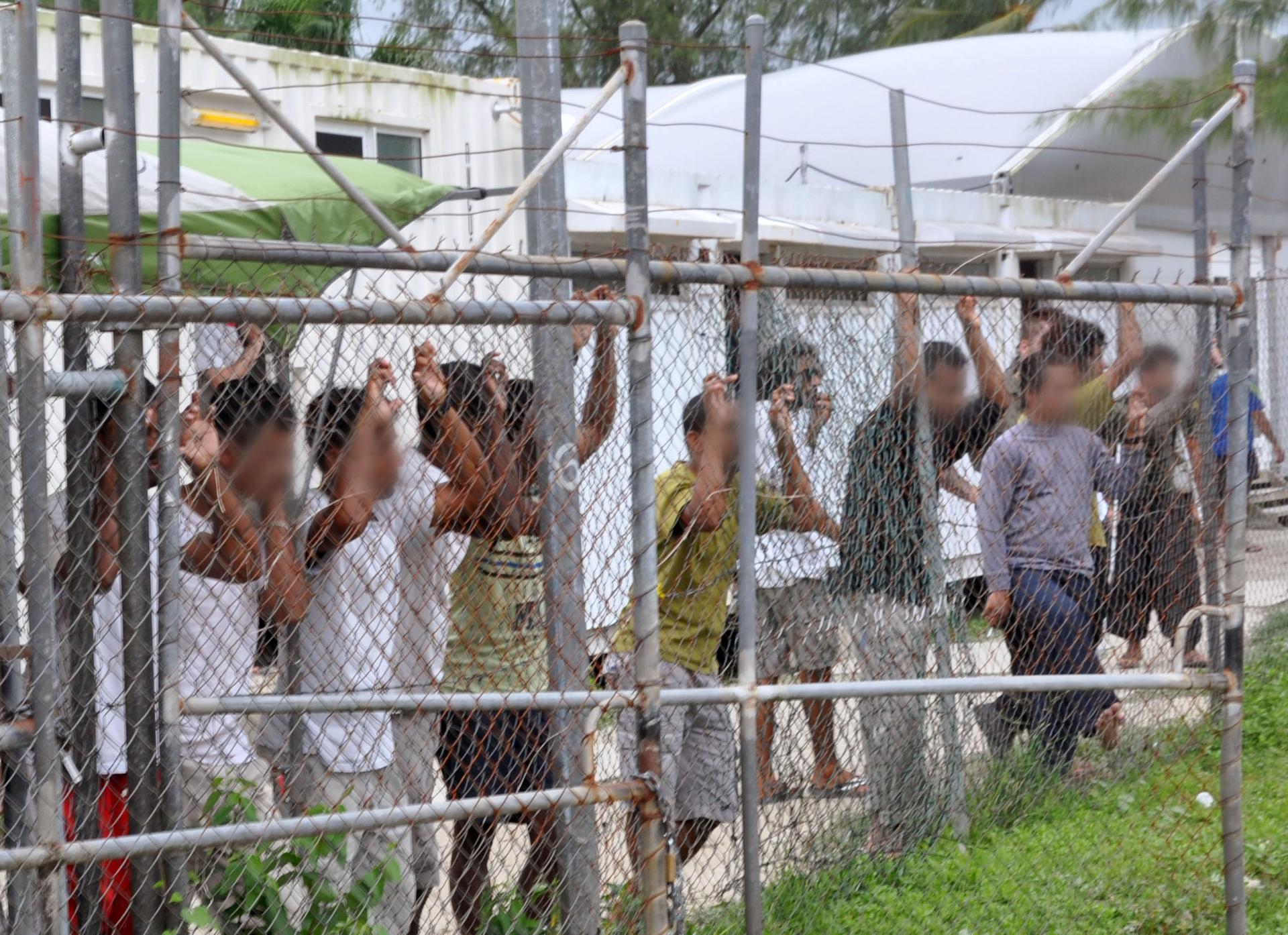For the asylum-seekers in one of Australia’s controversial offshore detention camps, there’s good news and bad news
Asylum-seekers look through a fence at the Manus Island detention center in Papua New Guinea, March 21, 2014. It is scheduled to close Oct. 31, 2017.
A few months after that famously tense phone call in January with Prime Minister Malcolm Turnbull, President Donald Trump reluctantly agreed to honor an Obama-era agreement to resettle up to 1,250 refugees languishing in Australian offshore detention camps.
But now there's a new wrinkle.
Papua New Guinea, the country where one of the two camps is located, says it is shutting down the Manus Island detention center on Oct. 31. In 2016, Papua New Guinea's supreme court ruled the camp was unconstitutional. Ever since, Australia's been trying to find a way to resettle the refugees, some of whom have been stuck in the camp for more than four years.
The agreement Australia struck with President Barack Obama in the waning months of his administration finally provided Turnbull with a solution of what to do with the refugees stuck in the offshore detention camps. The camps and the immigration policy that created them are deeply controversial in Australia. The country does not allow asylum-seekers arriving by boat into Australia — even for processing. Instead, the Australian military intercepts them at sea and returns them to their country of embarkation, usually Indonesia, or to the Manus Island camp in Papua New Guinea or a second camp on the tiny island nation of Nauru. Australia pays the two countries to host and manage the camps.
Turnbull's pleas to Trump on that January phone call show how critical it was for the Australian prime minister to get the new American president on board. The full transcript of the call was published by The Washington Post.
"Mr. President. I think this will make you look like a man who stands by the commitments of the United States," said Turnbull. "It shows that you are committed — I am asking you as a very good friend." And then the plea: "This is a big deal. It is really, really important to us that we maintain it."
And to make it palatable to Trump, who had just a day earlier announced his first immigration and refugee ban affecting citizens of seven Muslim-majority countries, Turnbull offered a little wiggle room. "The obligation is for the United States to look and examine and take up to and only if they choose — 1,250 to 2,000. Every individual is subject to your vetting. You can decide to take them or to not take them after vetting," said Turnbull.
Within a few months, Trump announced (through Vice President Mike Pence) that he would honor the agreement, in part because it's a bilateral agreement and Australia is obligated to do something in return: resettle refugees from Honduras, Guatemala and El Salvador who are languishing in a US-run detention camp in Costa Rica.
But so far, the State Department has not approved of any refugees from the Manus Island camp for resettlement in the United States. Which begs the question: How will the US fulfill its obligation to resettle the refugees once the Manus Island camp shuts down? In an email, a State Department spokesperson responded:
"We are aware that the Regional Processing Center on Manus Island may close on Oct. 31, 2017. If this should happen, we will identify another interview location for refugees referred by UNHCR for resettlement consideration. The closure of the Regional Processing Center does not affect the eligibility of refugees who have accessed the US Refugee Admissions Program."
Even some good news this week for the men in the Manus Island camp was overshadowed by the fact that they have nowhere to go. An Australian court accepted the terms of a 70 million Australian dollar settlement (about $56 million) for 1,300 past and current detainees on Manus Island. The class action lawsuit alleged detainees had been housed in inhumane conditons below Australian standards, given inadequate medical treatment and exposed to systemic abuse and violence. The Australian government settled instead of going to trial. But it's not clear if the men on Manus Island will get their payments before the camp closes, nor what will happen to the men after the camp closes.
For the roughly 800 men still at the Manus Island detention center, their fate is totally uncertain.
